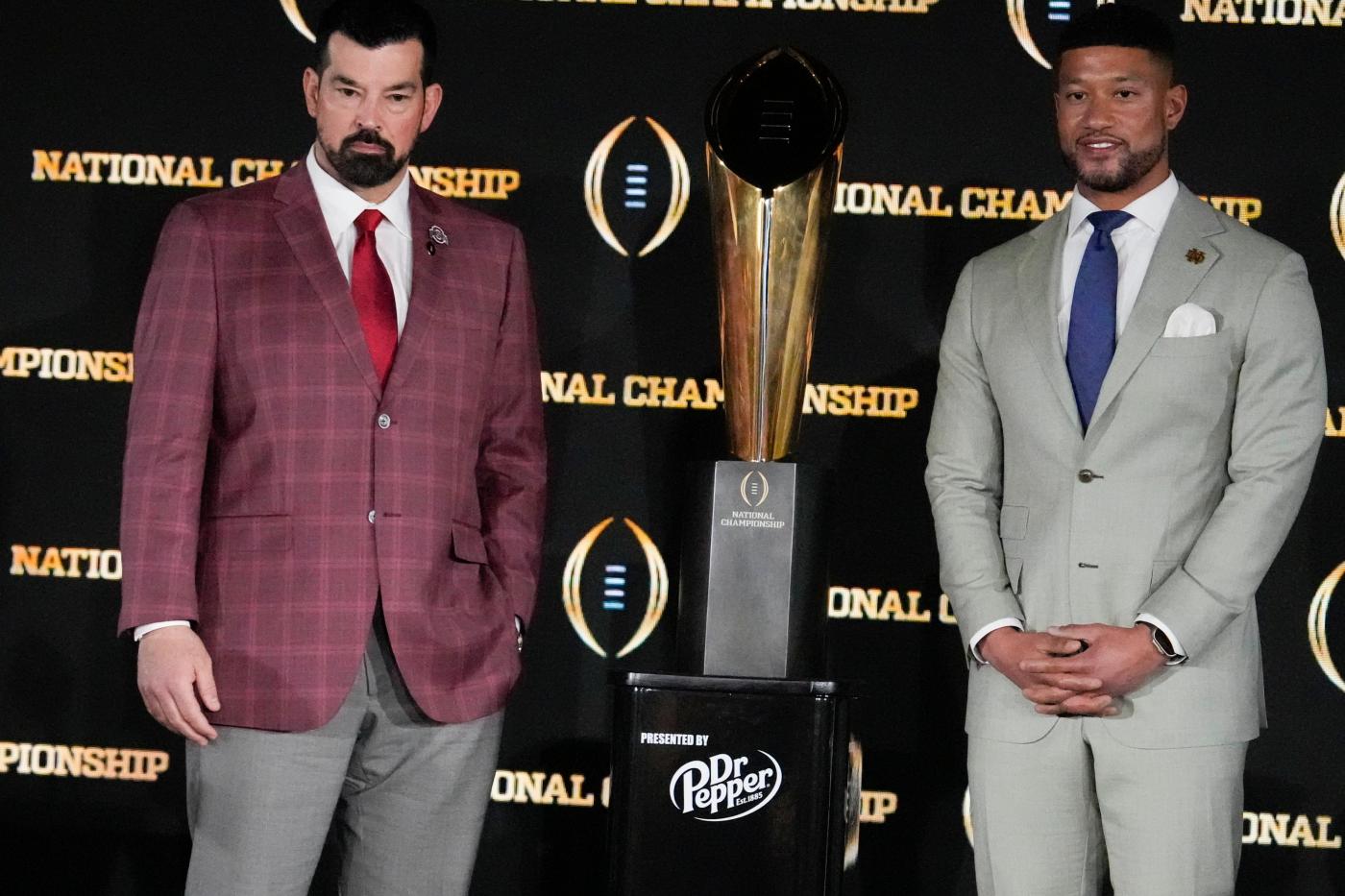Washington athletic director Pat Chun said the quiet part out loud with zero hesitation, full candor and no hint of righteous indignation.
The object of his dissection: the College Football Playoff selection process.
“This is just my opinion; I am not speaking for the conference,” Chun said of the Big Ten, which has proposed a radical model for the next edition of the CFP in which eight of 16 bids would be automatically awarded to the Big Ten and SEC regardless of regular-season results.
“Without questioning the integrity of anyone on the committee, it’s impossible not to have conflicts of interest. That’s the starting point.”
It’s the starting point that so few are willing to address publicly but so many consider the wrench in the massive machinery that is college football.
Distrust of the CFP selection committee — the possible conflicts of interest, the shifting priorities, the opaque process — is not about a single individual or a single decision or a single season. It’s an ongoing, pervasive sentiment.
It’s the reason Big Ten commissioner Tony Petitti went rogue with his 4-4-2-2-1 concept, spurring the Big 12, ACC and SEC to lean into an alternative model that calls for five automatic qualifiers and 11 at-large teams.
It’s the reason the Big 12 did away with its preseason media poll this year.
It’s the reason USC might end its series with Notre Dame.
It’s the reason the SEC is hesitant to add a ninth conference game.
And it’s the reason the sport’s powerbrokers are at loggerheads with a fast-approaching deadline to determine the playoff format starting in the 2026 season.
Eventually, the Big Ten and SEC, which have governing authority over the model, must find common ground. Will they lean into a format that’s heavy on automatic qualifiers or a model that leans into at-large bids? Will they expand to 16 teams, opt for 14 or stick with 12?
Chun’s comments, made recently to the Hotline, come during a particularly spicy stretch in the CFP’s evolution as the conference commissioners defend their terrain publicly.
Just last week, the Big 12’s Brett Yormark doubled down on his belief that 5+11 was “the right playoff format.”
Earlier this week, the SEC’s Greg Sankey acknowledged his conference has a different view of the issue than the Big Ten and suggested the 12-team CFP format “can stay” if the two leagues don’t agree on the right model for an expanded event.
For the most part, Petitti has remained quiet, preferring to negotiate behind the scenes. His lone public explanation came earlier this month, in a most comfortable setting.
During a guest appearance on Fox analyst Joel Klatt’s podcast, Petitti noted that limiting the selection committee’s role would open a pathway for both marquee non-conference matchups and CFP play-in games on the weekend of conference championships.
(In the Big Ten, for example, the third- and sixth-place teams would play for one of the automatic bids, as would the fourth- and fifth-place teams.)
The extra losses incurred by participants would not be held against playoff contenders. With the committee marginalized, postseason berths would be based on performance in league play.
The proposal has merit, but Petitti’s explanation might have been too late. Weeks of radio silence from the Big Ten allowed the SEC and Big 12 to seize the narrative and position themselves in opposition to the radical model and in favor of the 5+11 format.
“We want to earn it on the field,” Yormark said last week. “We do not need a professional model. We are not the NFL. We are college football and we must act like it.”
Chun repeatedly framed his comments as one man’s opinion but drilled down on the root of the selection conundrum: How can the committee accurately and fairly select at-large teams from a wildly disparate pool of candidates?
It doesn’t seem realistic given the current Power Four structure, with the massive conferences and no round-robin play to be found. (In the Big Ten, each team misses eight of the other 17 schools in a given season.)
“No two schools in the same conference have the same strength-of-schedule, and no two conferences have the same strength-of-schedule because there’s no balance,” Chun said.
“Two conferences (Big Ten and Big 12) play nine games and two conferences (SEC and ACC) play eight.”
He then referenced two sitting Big Ten athletic directors who have not only served on the committee but led it: Oregon’s Rob Mullens and Michigan’s Warde Manuel.
Related Articles
Pac-12, Mountain West headed back to court after mediation goes nowhere
SEC’s Greg Sankey on CFP format, NCAAT expansion and talks with Big Ten
CFP mailbag: 2026 format predictions, Big 12 strategy, Big Ten motivation
Big 12 media days: BYU’s Sitake on schedule, Deion Sanders on pro rules
Big 12 commish Brett Yormark “doubles down” on 5+11 model for CFP
“If you listen to Rob and Manuel talk,” Chun added, “they’ll tell you that there is no metric that can clearly differentiate the fourth-place team in one league from the fifth-place team in another league.
“Instead of having 11 at-larges picked by humans, it makes sense to me to have automatic qualifiers (AQs) with humans only picking three.”
Because the AQ model would allow for play-in games on championship weekend, Chun added, “it makes the season more meaningful for more teams.
“Instead of the top two or three being alive, if you’re in the top six or seven late in the season, you’re alive and there’s more excitement.”
Petitti is expected to address the situation next week at Big Ten media days in Las Vegas, either in his prepared remarks or during a question-and-answer session with assembled reporters.
Or both.
At some point this fall, he and Sankey — with input from Yormark and ACC commissioner Jim Phillips — must settle on a model that will not only define the playoff for 2026 and beyond but also shape the regular seasons to come. (The CFP must notify ESPN of any changes by December.)
“We are the only sports entity,” Chun noted, “that uses humans to pick the postseason — the only one.”
*** Send suggestions, comments and tips (confidentiality guaranteed) to [email protected] or call 408-920-5716
*** Follow me on the social media platform X: @WilnerHotline





